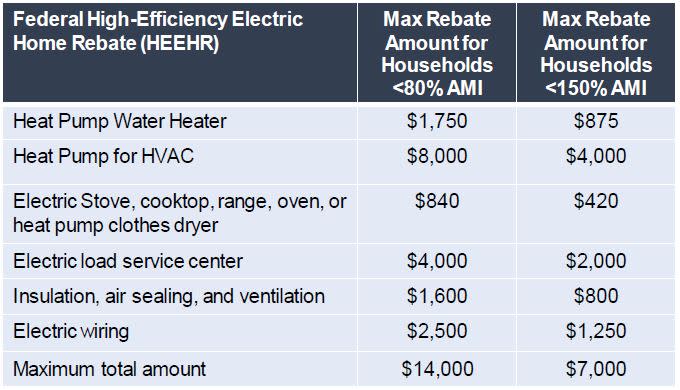Save energy, save money with rebates, tax credits and help from Nevada nonprofit
LAS VEGAS (KLAS) — They knock on your door or catch you while you’re trying to shop. You might be interested, but you’ll never let them know because you don’t want to talk to salesmen.
Who knows if what they’re saying is actually true?
There’s a place you can go for the straight story on money-saving government programs, and you might be surprised how much is available. The Nevada Clean Energy Fund (NCEF) is a nonprofit that’s working to get the word out to Nevada residents. They can also tell you about NV Energy’s programs to replace old appliances that are probably inflating your utility bills.
It’s a challenge to figure out where you fit in the tangle of rebates and tax credits that are available now, and what you need to do to claim money that’s available. Will Pregman, a loan officer and program manager for NCEF, wants the community to know that help is available through the nonprofit. They also maintain a list of licensed contractors who can do the work.
Here are the federal tax credits that are currently available:
Weatherization — up to $1,200
Rooftop solar, battery storage or geothermal heat — up to 30% of the cost
New electric vehicle — up to $7,500
Used electric vehicle — up to $4,000
Electric vehicle charger — up to $1,000
Heat pump air conditioner/heater — up to 30% of the cost
Heat pump water heater — up to $2,000
Electric panel — up to $600
Energy audit — up to $150
Since they are tax credits, you have to have taxable income to offset the amount of the tax credit.
But that’s really just the start. Programs offered by NV Energy can add to those savings. And the state is preparing to begin additional savings programs — likely in early 2025.
“I think it’s important that people are aware of what their options are and what they qualify for and the ways in which a lot of these incentives and tax credits and rebates can all be stacked on top of one another in order to maximize the amount of savings the consumer might see,” NCEF representative Will Pregman said.
NCEF’s website is at https://nevadacef.org/.
Pregman joined State Senator Dina Neal and County Commissioner William McCurdy II at a March 18 informational meeting at the Pearson Community Center, near Martin Luther King Boulevard and Carey Avenue. The meeting brought out some residents, but NCEF wants to spread the word to more Nevadans.
In an interview last week, Neal advised homeowners to watch for upcoming new programs that will be an important part of those savings. She says it’s not just solar — the savings extend to water heaters, air conditioners, stoves, clothes dryers, insulation, electric wiring and more.
“Some things are available and some things are going to be available,” Neal said.

Tracking what’s available now and what’s coming is a challenge, and NCEF can help residents sort that out. Even if you don’t think you’re eligible, it’s worth checking with NCEF.
For example, NV Energy programs for new appliances “are pretty flex,” according to Neal.
“We hope to be kind of a one-stop shop for people that are looking to improve their homes, live more safely, more comfortably,” Pregman said. “We want to be there for people who have questions about that stuff and need a little extra guidance on it.”
Sometimes rebates, tax credits and other financial help isn’t enough. For that, NCEF offers “RE-UP” loans.
“One of the main barriers preventing homeowners from accessing the savings from the Clean Power Plan is the upfront cost of a home repair or upgrade,” Pregman said. “We launched our Residential Energy Upgrade Program, or ‘RE-UP,’ to create an affordable financing option for these kinds of repairs and upgrades for low- or moderate-income Nevadans. The loans we offer through RE-UP, combined with rebates, tax credits, and other incentives, can put energy efficiency within reach for Nevada homeowners, lowering their monthly utility bills in the process.”
Another way that NCEF can assist: finding qualified contractors. They maintain a list of vetted contractors. More information is available by going to nevadacef.org and clicking on the “Residents” button to find more information on contractors under the “Find Contractors” link.
And NCEF wants contractors to know they can be added to the list if they meet the requirements. “We are looking to grow that list,” Pregman said. “We invite contractors to apply to be part of our program.”
Pregman said NCEF offers a solar consumer protection guide on its website. He advised people who have had problems with contractors to get in touch with the Contractors Board. He said there’s also a new effort by the Public Utilities Commission of Nevada — a complaint system for use with problems dealing with solar contractors.
For the latest news, weather, sports, and streaming video, head to KLAS.

